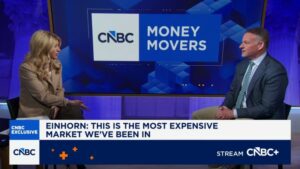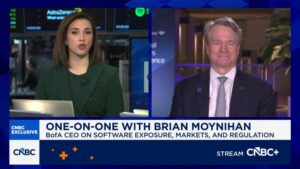Share this page:
The fuel crisis continues to hit the headlines. Long queues at petrol stations and regular reports of supply chain issues have dominated the news for the past week. But what impact could the crisis have going forwards?
According to Andrew Bailey, the governor of the Bank of England, it means that the UK’s economic recovery is going to be delayed until 2022. Here’s what you need to know.
What’s caused the fuel crisis?
The biggest problem is that there aren’t enough HGV drivers to supply petrol stations with fuel. While lots of industries have already suffered from a lack of drivers, fuel tanker drivers need additional safety qualifications, and this has exacerbated the problem in this sector.
While we can blame Brexit a little, a lot of countries across Europe have also experienced driver shortages. The pandemic meant a lot of drivers went back to their home countries. And it just so happens that as older drivers have retired, Covid has caused a huge backlog of driver tests for new drivers to replace them.
So when it was announced in the media that some petrol stations were closed because they couldn’t get their supply, this spurred panic buying. And the sudden spike in demand for fuel quickly escalated the situation into the fuel crisis.
What does it mean for the UK economy?
The UK economy was on shaky ground already following the pandemic. Yet, things were starting to look up. A booming housing market and the economy opening back up again made it look like the UK was back on track.
But the fuel crisis, inflation, tax rises and staff shortages have begun to take their toll. And the pound has taken a hit over fears of ‘stagflation’. Stagflation is a term coined to describe a scenario in which inflation and interest rates climb, unemployment soars and GDP growth suffers.
The fuel crisis has led to petrol prices reaching an eight-year high. The cost of food and energy is also on the up.
So this all means that we could be looking at an interest rate rise sometime next year.
What does it all mean for your wallet?
A faltering economy and high petrol prices are not good news.
If the situation continues, we’ll have to be prepared for:
- Higher prices – supply chain issues will feed into higher prices. Inflation seems to just keep climbing at the moment, so brace yourself for your weekly food shop to become more expensive.
- Rising interest rates – borrowing may well become more expensive next year if the Bank of England increases interest rates. But the flip side is that we may see some more competitive deals for savings accounts.
- Rising unemployment – a slow economic recovery could have an impact on the number of jobs out there, though there are few signs of this happening at the moment. The combination of increased prices and higher taxes could squeeze household budgets. This is likely to affect how much money households spend, which has a knock-on effect on the economy.
What can you do to protect your finances?
While it is impossible to completely future proof your finances, there are some things you can do to put yourself in a stronger position.
Paying down any expensive debt (credit cards or loans) is always a good first step. Then look to build up an emergency savings fund in order to deal with those unexpected costs.
Switching to cheaper mortgage or energy deals can also help. Maybe even look to fix your interest rate/tariff for a period of time. This could protect you from any further price rises in the near future.
Could you be rewarded for your everyday spending?
Rewards credit cards include schemes that reward you simply for using your credit card. When you spend money on a rewards card you could earn loyalty points, in-store vouchers airmiles, and more. MyWalletHero makes it easy for you to find a card that matches your spending habits so you can get the most value from your rewards.
Was this article helpful?
YesNo
About the author
Kate is a freelance writer who specialises in answering personal finance questions in the clearest way possible.
Share this page:
Some offers on MyWalletHero are from our partners — it’s how we make money and keep this site going. But does that impact our ratings? Nope. Our commitment is to you. If a product isn’t any good, our rating will reflect that, or we won’t list it at all. Also, while we aim to feature the best products available, we do not review every product on the market. Learn more here. The statements above are The Motley Fool’s alone and have not been provided or endorsed by bank advertisers. John Mackey, CEO of Whole Foods Market, an Amazon subsidiary, is a member of The Motley Fool’s board of directors. The Motley Fool UK has recommended Barclays, Hargreaves Lansdown, HSBC Holdings, Lloyds Banking Group, Mastercard, and Tesco.
This post was originally published on Motley Fool







